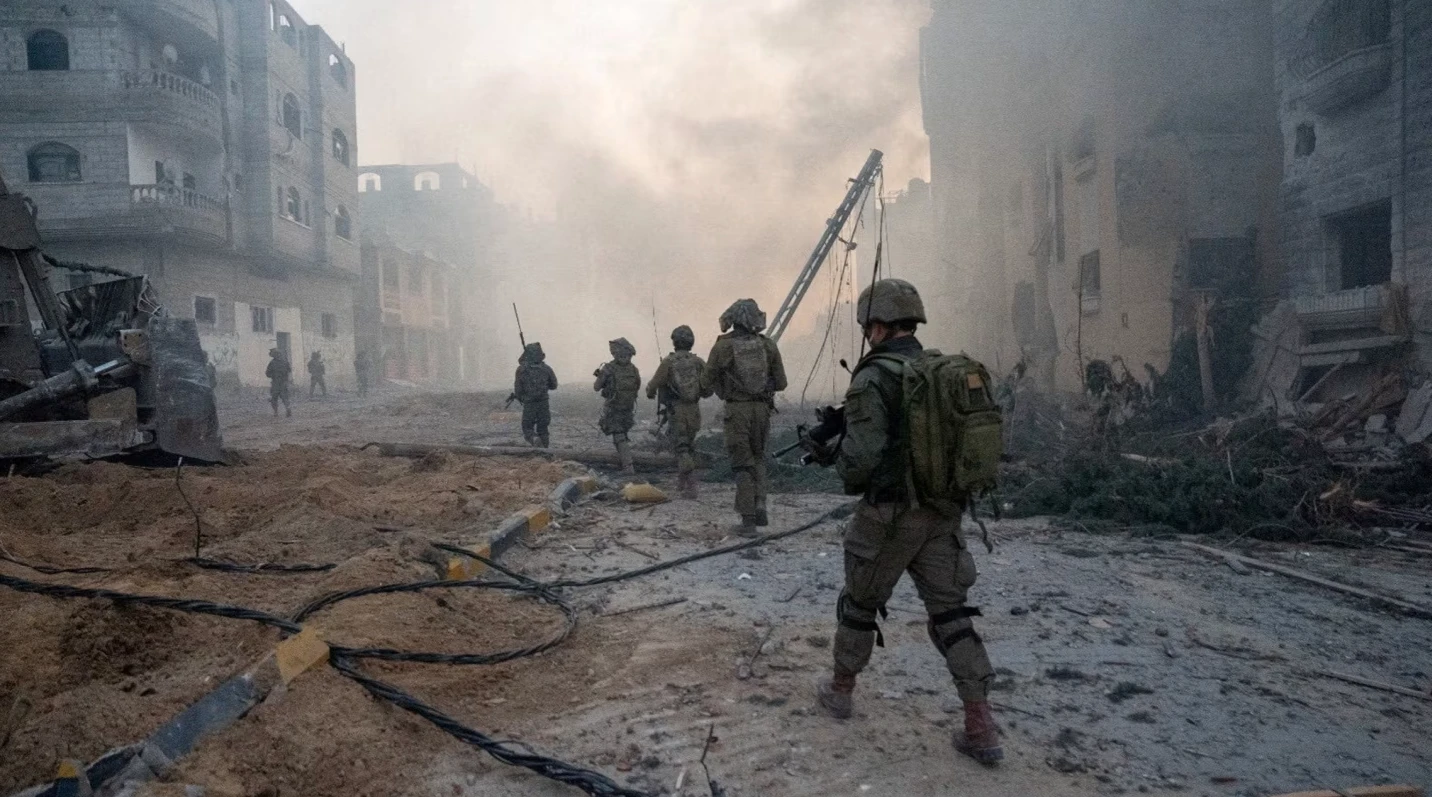Israel seen shifting to longer, less intense phase of Gaza war

Stay tuned with 24 News HD Android App

Israeli Prime Minister Benjamin Netanyahu's weekend announcement that heavy fighting in Gaza is winding down has sparked speculation about the next stage of military operations in the Palestinian territory.
Experts interviewed by AFP expect a potentially prolonged next phase, during which the Israeli army may take on civilian governance in Gaza before transitioning to an independent civilian administration.
The end of 'intense' fighting?
On Sunday, Netanyahu said "the war in its intense phase is about to end in Rafah", referring to the city near Gaza's southern border with Egypt, which the Israeli military sees as Hamas's last stronghold.
Omer Dostri, a military expert at the Jerusalem Institute for Strategy and Security, said he expects the army to "reduce" its ground presence in Gaza and to increasingly use drones and fighter jets for attacks.
Dostri said the first phase involved "extensive air and artillery strikes" targeting militant structures in Gaza for about two weeks. The second phase, now ending, featured "a ground manoeuvre into the Gaza Strip, deploying infantry, armoured vehicles and tanks".
The goal of the third phase would be "to further dismantle Hamas's remaining power, prevent their resurgence, stop smuggling along the Egyptian border, and rescue hostages", he added.
Mairav Zonszein, an analyst for the International Crisis Group, said: "What they're saying is that they're basically almost done with taking apart Hamas battalions there (Rafah) and so they're going to move to rolling operations."
How long for the new phase?
After almost nine months of war, Rafah was the last part of Gaza to face a ground invasion.
Israel's Defence Minister Yoav Gallant is currently in Washington discussing what he called "phase C" in Gaza.
Gallant criticised Netanyahu for failing to rule out an Israeli governance in post-war Gaza, but Dostri said the next phase of Israeli operations was "expected to continue for at least a few more years".
Former war cabinet member and military chief Gadi Eisenkot, speaking at a conference on Monday, emphasised a long-term strategy in Gaza, saying "we have a score to settle and it will take many, many years".
Zonszein said Israel would "always keep some troops on the ground" in strategic areas like the Netzarim corridor, which bisects the territory and restricts Gazans' movement northward.
Kobi Michael of the Institute for National Security Studies said he expects Israeli brigades from across the border to effectively control Gaza, "similar to the reality that we know in the West Bank for the last two years".
What kind of Gaza governance?
Dostri said Israel would "maintain military control over the Gaza Strip for the foreseeable future, with forces remaining present, albeit in reduced numbers, even if a hostage release deal is reached with Hamas".
But civil affairs were expected to eventually be handled by an independent administration, he added.
Israel's National Security Adviser Tzachi Hanegbi said at Monday's conference that "the cabinet authorised the (army) to lead the process of finding a governmental alternative" to govern Gaza.
He said the preferred alternative would be "a local leadership that can live alongside Israel and not invest in trying to kill Israelis."
To achieve this, Hanegbi said he envisioned "a top-down process led by a coalition of moderate Arab countries together with the United States, Europe and the United Nations" sharing responsibility.
Michael expects a potential civil administration to be deployed over Gaza in phases -- one governorate at a time starting with Rafah. But Israel would retain "freedom of action" in Gaza, he said.
Eisenkot warned there was also "quite a bit of influence (in the government) from people who want to take over the Gaza Strip, bring back Jewish settlement", in reference to Israeli settlements in the enclave until 2005.
What about hostages?
In May, US President Joe Biden outlined what he said was an Israeli proposal for a ceasefire and hostage release.
During their October 7 attack, Hamas militants abducted 251 hostages to Gaza, of whom 116 remain there, including 42 the military says are dead.
While mediators work towards a resolution, analysts caution Israel may resume full combat if Hamas does not release all hostages.
Hamas could "release some of the hostages and then the ceasefire would end and they would go back to war and then in effect Netanyahu and Israel would give up on the remaining hostages", said ICG's Zonszein.
